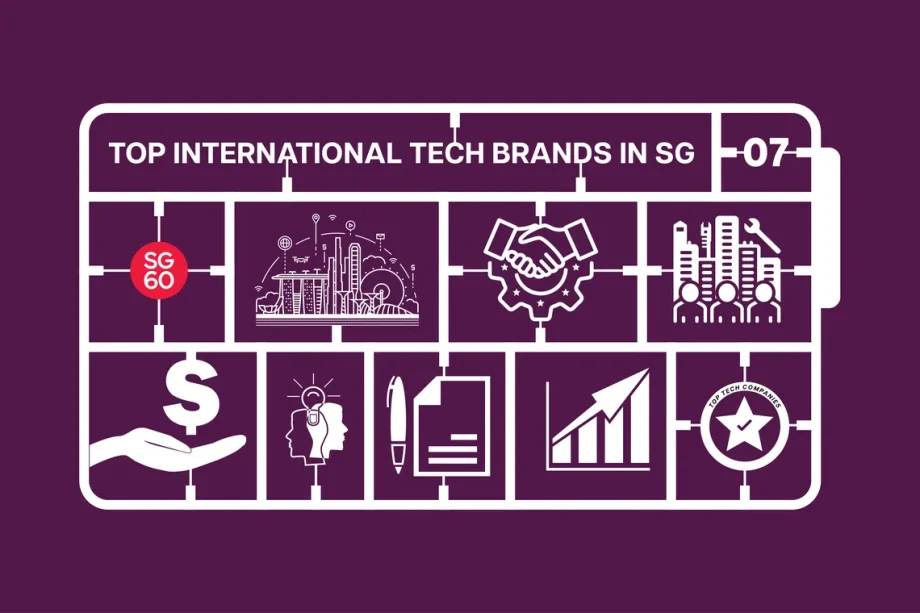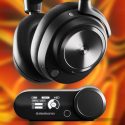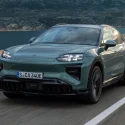HardwareZone celebrates Singapore’s 60th birthday with a series of articles showcasing local tech brands that have helped build our nation and put us on the world stage. In this final part of the series, we focus our lens further and acknowledge the international brands that may not have had their start in Singapore, but have been no less impactful in our nation’s history of technological innovation and progress.
(This article is one of 7 parts in our SG60 Tech Special series.)
1. Apple

Apple CEO Tim Cook visits the first Apple Developer Center in Southeast Asia. He meets Singaporean Swift Student Challenge Winner Jiang Tongyu, and gives Tongyu’s rhythm game, Tambourine Story, a spin. April 2024.
Photo: Brooks Kraft/Apple Inc.
From a small circuit-board factory in Ang Mo Kio to a regional campus and iconic flagship stores, Apple’s 40-year journey in Singapore charts the evolution of both a tech giant and a nation built on innovation.
In 2021, Apple celebrated “40 years of innovation, education and progress,” highlighting its 3,500 staff and over 55,000 ecosystem jobs. A 2024 campus expansion further cemented Singapore’s strategic importance in the Asia-Pacific.
Initially focused on manufacturing Apple II boards, Apple shifted to R&D, services, software, and ecosystem enablement as Singapore developed. By 2021, its operations hosted over 50 nationalities, supporting local developers like Mighty Bear Games, reflecting Singapore’s tech hub ambitions.
Apple’s retail presence includes flagship stores like Apple Orchard Road (2017) and Apple Marina Bay Sands (2020). These stores are not just sales outlets but community hubs for “Today at Apple” sessions and creative workshops, signifying a deeper investment beyond commerce.
Beyond business, Apple collaborates with local schools on iPad-based teaching and Swift coding. In sustainability, Apple was Singapore’s first company powered entirely by renewable energy (2015), using solar panels on 800+ rooftops. New campuses and stores aim for LEED Gold certification and 100% renewable energy.
The 2024 US$250 million campus expansion in Ang Mo Kio will consolidate buildings, support AI, hardware-software integration, and services, making Singapore a critical hub for Apple’s Asia-Pacific strategy. This expansion builds on 40 years of partnership, seeing Singapore as an innovation, education, jobs, and community partner.
For Singapore, Apple’s presence signifies high-value activities: early manufacturing and R&D, regional operations and ecosystem jobs, and future advanced campus functions, AI, services, and sustainability. The flagship stores serve as public interfaces for this journey. Singapore’s talent, stability, infrastructure, and sustainability focus align with Apple’s global priorities.
2. Dyson

Professor Chong Tow Chong of SUTD and Sir James Dyson at the opening of the Dyson-SUTD Innovation Studios, 25th November 2022.
Photo: James Dyson Foundation
Dyson’s global headquarters in Singapore, located at the old St James Power Station, has almost doubled its headcount to 2,000, with nearly half being engineers and scientists. Singapore’s skilled workforce, strong in hardware and software, enables Dyson to explore new technologies like robotics, AI, and high-speed electric motors. The company has invested in Singapore’s future by hiring over 150 recent graduates, fostering innovation.
Teams in Singapore develop and manufacture Dyson Hyperdymium motors for global products. The X020, the pioneering generation of these motors, was developed here in 1999 due to James Dyson’s dissatisfaction with existing motor technology. Manufacturing began in 2004, and Dyson continues to develop these core technologies in Singapore.












